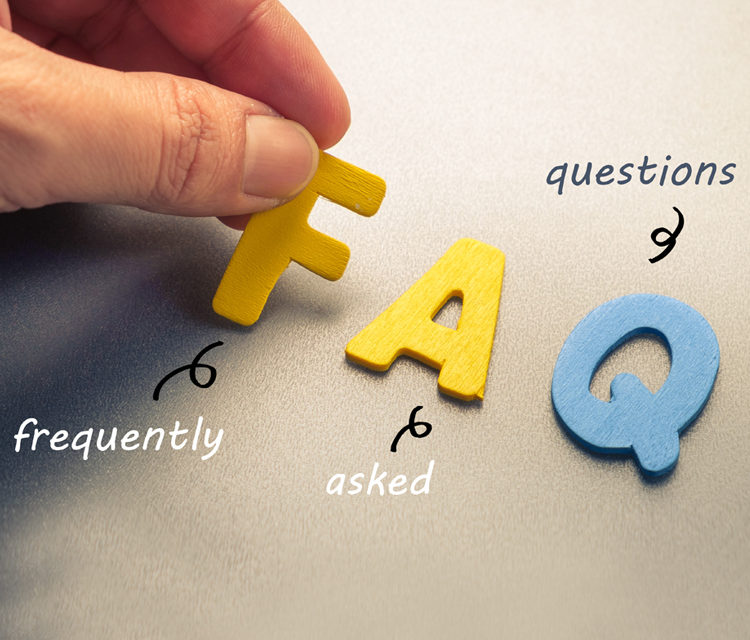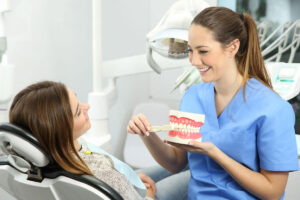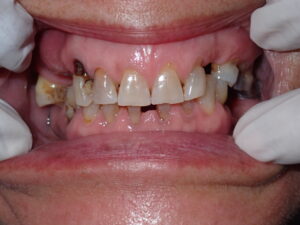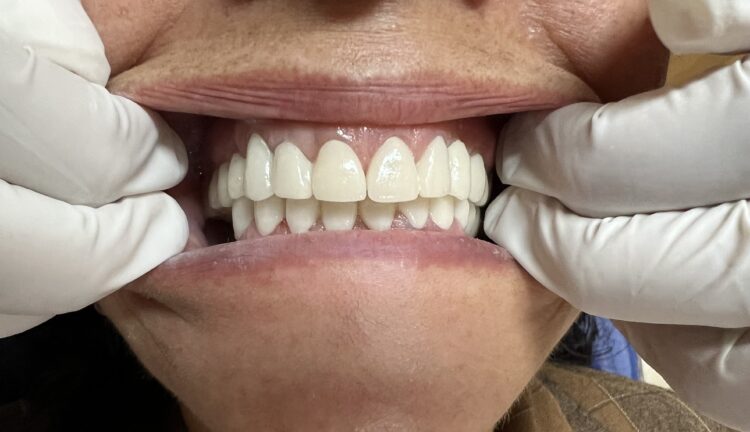
Most Common FAQ’S
Everyone has questions about going to the dentist which is perfectly natural. In this blog the most frequently asked dental questions, you’ll find detailed information about our dental services including dental problems, preventive care, cosmetic options, as well as some helpful tips about unexpected issues like a chipped tooth. With dental advancements due to technology like ‘Immediate Implants’ and 4 day ‘Smile Makeovers’, it’s a good idea to ask questions about your options when you arrive for your first consultation. At ‘Smile Delhi – The Dental Clinic’ our goal is to help customise the best treatment option for you.
1. FIRST APPOINTMENTS
-
How Do I Make My First Appointment?
Yes, you can send:
- Query on the website query form www.dentalclinicdelhi.com
- Give us a call on 9811106871
- Mail us at [email protected]
-
What Should I Bring to My First Appointment?
You should always bring your:
- Medical history with you at your first appointment.
- Allergy History
- If you are suffering from tooth pain, please avoid taking any painkillers (as it masks the symptoms) or medicines before visiting your dentist.
-
How Frequently Should I Visit My Dentist?
One should visit the dentist at least:
- Twice a year i.e., six monthly for regular check-ups
- If there is toothache, bleeding gums, sensitive teeth or any dental problem, one is advised to visit the dentist immediately.
2. PREVENTIVE CARE
-
Does Cleaning of Teeth Make Them Loose?
Teeth will not become loose because of the cleaning procedure. The teeth are held firmly in place due to the gums and the bone around them. The tartar (food debris and bacteria) gathered around the teeth causes infection of the gums and bone. This infection leads to receding of bone and gum levels and thus creates gaps between teeth (Pyorrhoea). This tartar, if not removed periodically (once in every 6 months) can cause loosening of teeth. The cleaning procedure will help remove tartar and stop the gum and bone from receding. This will increase the life and integrity of the teeth and gums.
-
How Frequently Should I Get My Teeth Cleaned?
It depends on each dental patient’s particular oral needs as every patient is different. Some patients are simply more prone to having dental issues, making it necessary for them to see a dental professional more often. Other patients will experience hardly any dental issues at all, which means it is likely that they will need to have their teeth cleaned on a less frequent basis.
General guidelines state that patients should make an appointment for a professional dental cleaning every six months. While this is ideal for most people, some will need to come in every three months and others will only need to come in every nine or 12 months.
-
What Causes Bad Breath?
Bad breath or halitosis is a common oral health problem which could be prevalent not only due to dental problems but also some systemic diseases like respiratory problems, diabetes, stomach upsets etc.
Babreath can arise due to negligence of oral hygiene, pyorrhoea in gums, food lodgement in decayed teeth and unclean tongue. You could be either suggested the use of a mouthwash, taught proper brushing/flossing techniques and treated for dental decay or gum problems.
3. FAMILY DENTISTRY
-
When Will My Child Get Their First Tooth?
The first tooth usually appears around 6 months old. The first tooth to appear is always the lower front teeth (the lower central incisors). Most children will usually have all of their baby teeth by age 3.
There is a wide range of variability of when a first tooth may appear. Some babies may not have any teeth by their first birthday!
Around 3 months of age, babies will begin exploring the world with their mouth and have increased saliva and start to put their hands in their mouth. Many parents question whether or not this means that their baby is teething.
Children start being cranky when teething, since they may experience the signs like drooling, irritability, restlessness, and loss of appetite. Fever, illness, and diarrhoea are also some symptoms of teething but, if your child presents with these signs later, they need to be evaluated by some child specialist doctor. The best solution to comfort the child is to have the child chew on a cold or frozen rubber teething ring. Topical anaesthetics/gels are not advisable.
-
My Child’s Baby Teeth Have Cavities. Should they Be Filled?
Yes, it is necessary to get your babies teeth filled.
Children need their teeth to chew, speak, and smile till they grow in adults and have their permanent teeth. Baby teeth hold the space for permanent teeth. If your child loses a baby tooth too early, the adjacent teeth are more likely to tilt or drift into the empty space and create limited space in the jaw for the permanent tooth to erupt. If left untreated, the permanent tooth can come in crowded or be blocked from erupting.
Decayed baby teeth can cause pain, infection and problems with eating, sleeping and going to school. Some baby teeth stay in the mouth until children are 12 or 13, which is too long to be suffering with toothache and soreness.
-
What is the Right Age for Braces Treatment?
While preferable age for braces is teenage, people of any age can avail this treatment. The treatment time may however be longer for adult patients as the bone is denser in them. Having said that, with newer treatment options like invisible, ceramic braces, aesthetics and time of treatment are also not a problem.
-
Is it Safe to Visit a Dentist During Pregnancy?
The second trimester is the safest trimester for any dental treatment.
Since hormonal changes are rampant in pregnancy, teeth and gum cleaning by the dentist is necessary as and when required.
The mouth is a major gateway to the blood vessels and digestive system. Your oral health can be a good indicator of your overall health. Hormone changes and certain medications can increase the risk of periodontal disease and dry mouth.
4. FILLINGS AND X-RAYS
-
What is a Root Canal?
Inside your tooth, beneath the white enamel and a hard layer called dentin, is a soft tissue called pulp. This tissue contains blood vessels, nerves and connective tissue, which help grow the root of your tooth during its development. Whenever a tooth decay/cavity reaches and infects the pulp of the tooth, the only way to salvage the tooth is removal of this infected pulp along with its nerve and blood vessels. This procedure is called root canal treatment (RCT). Here the tooth is remains intact in your mouth and functions normally after the procedure. With technology backing dentistry a RCT is a very routine and painless procedure like a filling.
It is usually completed in one or two appointments, depending on the condition of your tooth and your personal circumstances. Getting a root canal is relatively painless and extremely effective. You’ll be back to smiling, biting and chewing with ease in no time.
Saving the natural tooth with root canal treatment has many advantages:
- Efficient Chewing
- Normal Biting Force and Sensation
- Natural Appearance
- Protects other Teeth from Excessive Wear or Strain
-
What is a Dental Filling? Do I Need It?
A filling is a way to restore a tooth damaged by decay back to its normal function and shape. When a dentist gives you a filling, he or she first removes the decayed/black deep cavities, cleans this affected area, and then fills the cleaned-out portion of the tooth with a filling material which is biocompatible.
By closing off spaces where bacteria can enter, a filling also helps prevent further decay. Materials used for fillings include gold, porcelain, a composite resin (tooth-coloured fillings), and an amalgam (an alloy of mercury, silver, copper, tin and sometimes zinc).
5. COSMETIC DENTISTRY
-
I’m Interested in Changing the Shape of My Teeth. What Options Are Available?
Yes, today we have a lot of options to provide you with the smile of your dreams. A good smile has more than just healthy teeth and gums. It is a blend of good and proportionate shape, size, colour and alignment of the teeth and gums that create a balanced harmonious smile. Many of us have healthy teeth as well as gums yet are unhappy with the appearance of our smiles. In such an instance we can go in for a smile evaluation to experts at ‘Smile Delhi’, who will evaluate the smile for its missing or underplayed features and provide a solution for it. After knowing the expectations of your dream smile, the best cosmetic dentists in Delhi will proceed with the correction through various cosmetic dental treatment, viz… veneers, whitening, aligners etc. This process is called Smile Designing/Smile Makeover.
-
My Tooth is Cracked/Broken, How Should I Proceed?
If your tooth is broken, chipped or fractured, see your dentist near you as soon as possible. Otherwise, your tooth could be damaged further or become infected. You could possibly end up losing the tooth. Treatment for a broken/ chipped tooth will depend on how severely it is damaged. If only a small piece of enamel/ the outer white surface is broken, the repair can usually be done simply by filling with a good tooth coloured material. A badly damaged or broken tooth may require a root canal treatment/crown/dental veneer.
-
What Are My Options for Whitening My Teeth?
There’s nothing better than a bright, white smile to make you feel confident and happy about yourself. Smile is the second most noticeable thing at the first look after your eyes.
Teeth Bleaching/Whitening is the treatment to enhance and brighten the appearance of your smile. This can help to lighten the shade of your teeth that are:
- Dull or Lacklustre in Colour
- Yellowed from Age or Tobacco Use
- Stained from Coffee, Tea, and other Products
- Discoloured from Medications or Illnesses and Many More
All-in-all, nothing beats the advantages of professional Zoom advanced teeth whitening service at ‘Smile Delhi- The Dental Clinic’, when it comes to gaining a dramatically whiter, brighter smile. The best cosmetic dentists are available here and give you a perfect smile makeover in just an hour.
Professional teeth bleaching services offer significant benefits when compared with over-the-counter products such as: teeth whitening gels or pastes, home whitening systems and so on.
6. DENTAL EMERGENCIES
-
What if a Tooth Gets Knocked Out in an Accident?
If you knock out a tooth, you should:
- Find the tooth
- Hold it by the crown (the white part that is visible out of the gums)
- Clean the tooth if it’s dirty or rinse it in water
- Put it back into position (adult teeth only) never try to re-insert a baby tooth
- Bite on a handkerchief or cotton piece lightly to hold the tooth in place
- Go to see a dentist as an emergency
- If you can’t put the tooth back in position, put it in milk and see a dentist straight away.
The sooner a knocked-out tooth is re-implanted, the more likely it is to embed itself back into the gum.
If your child knocks out a baby tooth, you shouldn’t try to re-implant it because you may damage the adult tooth growing underneath. Take your child to see a dentist immediately.
If you will put your tooth back in yourself and then visit a dentist, the dentist will check if the tooth is in the correct position by clinically observing and taking an X-ray.
They’ll splint it to the teeth on either side to hold it in position for two weeks. Splinting is a technique that temporarily attaches the tooth to keep it in place.
If you have kept your tooth in milk and gone straight to the dentist, the dentist will numb the affected area and reposition the tooth. They’ll check that it’s in the correct position by taking an X-ray before splinting it to the teeth either side for two weeks.
If you lost your tooth, go straight to a dentist near you. They can provide you with various options to fix a new one like:
- Immediate Dental Implant
- Bridge
- Denture
-
What Are My Options for Replacing a Missing Tooth?
Missing teeth are not merely a cosmetic concern, but also a functional problem. A tooth loss condition is really more serious than it is often perceived to be. If a missing tooth is not replaced, the adjacent teeth start to shift/migrate in this empty space. The opposing tooth also starts growing into the space.
This migration of teeth leads to spaces, food lodgement, cavities, gum problems etc.
Replacing the missing teeth can affect the overall bite and help ease some of the excessive and irregular pressure on other teeth created by chewing.
The options of replacing missing teeth are:
- Dental Implants
- Crowns and Bridges
- Removable Partial Denture
- Complete Denture
7. DENTAL HEALTHCARE
-
What Causes Teeth to Decay?
Tooth decay/cavities result due to improper brushing or not maintaining your oral hygiene. This results in some food particles remaining in the mouth. The bacteria in the mouth react with this food and produce acid which causes decay/cavities.
Tooth decay can lead to cavities (dental caries), which are holes in your teeth. If tooth decay is not treated, it can cause pain, infection, and even tooth loss. A white spot may appear where minerals have been lost. This is an early sign of tooth decay. You may be able to stop or reverse the decay at this point. Your enamel can still repair itself, if you take better care of your teeth and limit sugary/starchy foods and drinks.
But if the tooth decay process continues, more minerals are lost. Over time, the enamel is weakened and destroyed, forming a cavity. A cavity is a hole in your tooth that is black/brown in colour. It is permanent damage that a dentist has to repair with a filling.
-
Why Do My Gums Bleed?
Our mouths are full of bacteria. Some bacteria are helpful. But some can be harmful, including the ones that play a role in tooth decay. These bacteria combine with food to form a soft, sticky film called plaque. The bacteria in plaque use the sugar and starch in what you eat and drink to make acids. Over time, the plaque can harden into tartar. Besides damaging your teeth, plaque and tartar can also irritate your gums and cause gum disease (pyorrhoea).
There could be various reasons why one would face a problem of bleeding gums like accumulation of tartar around the necks of teeth, using a hard bristle tooth brush, intake of certain medications like anti-epileptic drugs. It calls for immediate attention by the best dentists in Delhi to detect the cause and suggest suitable treatment options like a professional deep gum cleaning. The best dental clinics in Delhi regularly counsel their patients on the importance of maintaining oral hygiene and regular scaling of teeth.
To book an appointment with us in, ‘Smile Delhi – The Dental Clinic’– call us on +91-9811106871 or whatsapp Dr. Suprriya B Bhatia on +91-9811106377. You can also mail us on [email protected]
“We Care To Make You Smile”
Posted by: Dr Hema


































































